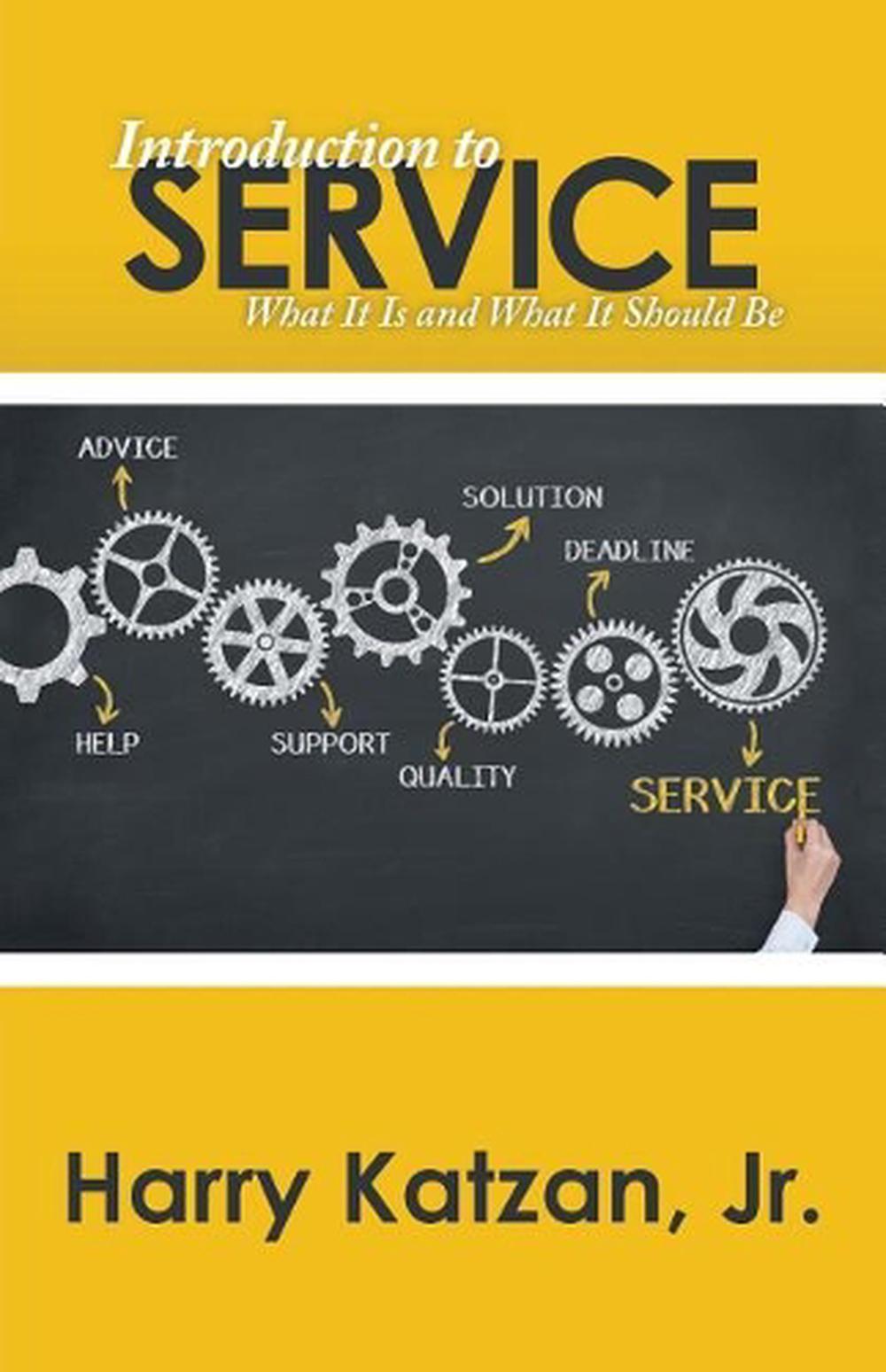
When you click on links to various merchants on this site and make a purchase, this can result in this site earning a commission. Affiliate programs and affiliations include, but are not limited to, the eBay Partner Network.
Introduction to Service: What It Is and What It Should Be by Harry Katzan, Jr (E

- Item No : 135346096694
- Condition : Brand New
- Brand : No brand Info
- Seller : the_nile
- Current Bid : US $19.66
-
* Item Description
-
The Nile on eBay

Introduction to Service
by Harry Katzan, Jr, Harry Katzan
A service is a client/provider interaction that creates and captures value for both participants. We use service in several aspects of our lives, including business, government, education, health care, and religion. But what exactly are the best practices, principles, and theories of service? The actual study of service science is a relatively new field, but it is one that can open the door to a better understanding of this essential part of our lives. In this invaluable guide, Harry Katzan Jr., director of the Service Institute of Hilton Head, offers a concise, readable examination of how managers can use information about services to construct a better customer environment. Harry Katzan Jr. believes that the characteristics of a service process determine its efficacy in solving real-world problems. He disseminates these characteristics and provides a clearer view to help managers pinpoint the exact issues they need to tackle. Informative chapters include the following:
-- Service Concepts
-- Service Systems
-- Information Services
-- Service Management
-- Service Business With a comprehensive bibliography, detailed footnotes, and a highly engaging writing style, Introduction to Service is perfect for the professional and the layman alike. Discover how you can put information about services to work for you!FORMAT
PaperbackLANGUAGE
EnglishCONDITION
Brand New
Excerpt from Book
Service is a subject we should all know about, because it is the up and coming discipline for the 21st century. This book covers what a service is and what it should be. In ordinary everyday language, a service is an activity that one entity provides for another entity, such as auto repair or dental work. The entity performing the service is called the service provider and the entity receiving the service is called the service consumer, even though different names usually apply. Services are important to people in business, government, education, health care and management, religion, military, scientific research, engineering, and other endeavors that are too numerous to mention. The subject is important to providers and consumers of services, alike. In fact, most service providers - be they individuals, businesses, governments, and so forth - are also consumers of services during the course of everyday life. A sage has said that in reality, everything is a service, because a consumer - when receiving an activity of some sort - is actually providing a service to the provider. Think about it. Even a person with an MD degree is actually not a service provider unless he or she has patients. This is a subject for another chapter or even another book. Today, most of us are employed in performing a service of some kind. Typical examples are doctors, dentists, lawyers, teachers, entertainers, news people, dry cleaners, and maintenance workers. Actually, this should not be a surprise, since much of what we do in everyday life involves using a service. A service activity is characterized by the fact that the result is usually intangible, meaning, in this instance, that an artifact of some sort is not produced as a result of the service experience, as in the manufacture of a product. Most people never think about the many aspects of a service engagement. Therefore, basic concepts and some service definitions are definitely in order. A service is a client/provider interaction that creates and captures value for both participants, and a service system is a system of people and technology that adapts to the changing value of knowledge in the system.
Details
ISBN1532035969Pages 124Publisher iUniverseLanguage EnglishISBN-10 1532035969ISBN-13 9781532035968Media BookFormat PaperbackYear 2017Imprint iUniverseIllustrations Illustrations, black and whitePublication Date 2017-10-30Short Title Introduction to ServiceSubtitle What It Is and What It Should BeUK Release Date 2017-10-30Author Harry KatzanAudience General


-
- The Lost Super Foods
- $ 37.00
- The Self-Sufficient Backyard
- $ 37.00
- A Navy Seals BUG IN GUIDE
- $ 39.00
- Childrens Books Phonics Lot 60
- $ 34.99
















